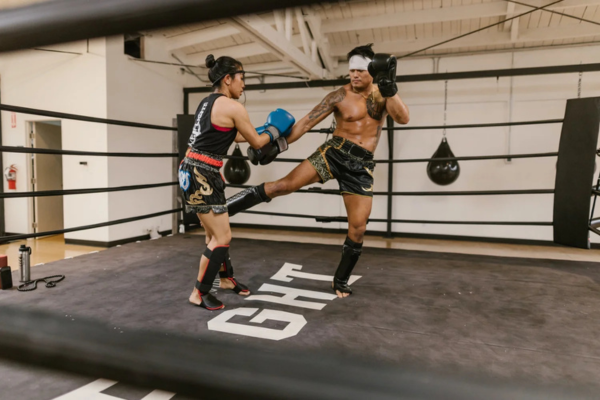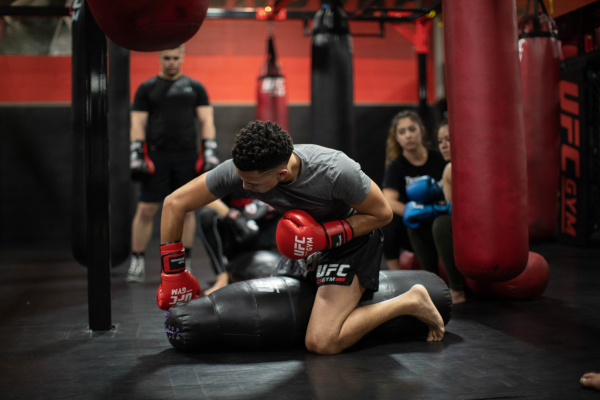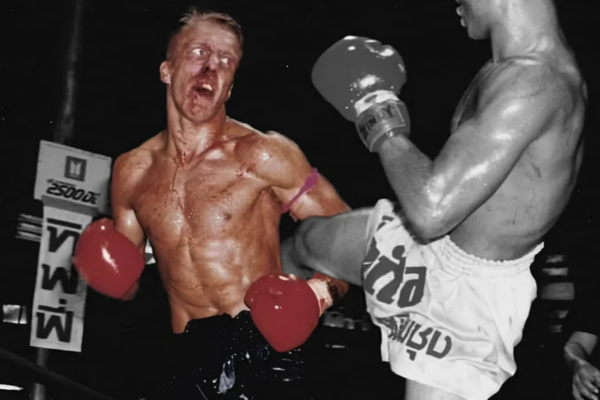How do you prevent wear and tear on your shin guards?

Shin guards are indispensable for every combat athlete. They protect you from injuries and ensure you can spar and train with confidence. But like any piece of gear, shin guards wear down over time. Whether you’re just starting out or have been training for years, eventually you’ll face this issue. In this article, you’ll learn what causes wear, how to recognize it, and — most importantly — how to prevent it. This way, your gear stays not only looking good but also safe and effective.
The Invisible Enemy: What Exactly Is Wear?

Wear is the gradual deterioration of material and structure through use. With shin guards, this shows as torn seams, worn-out Velcro, reduced padding, and a distorted fit. What makes it tricky is that it usually happens slowly — you only notice it when it’s too late. And in combat sports, that could mean stepping onto the mat without adequate protection.
The 5 Main Causes of Shin Guard Wear
-
Intensive Use
Every kick, every block, every sparring session adds up. Especially during intense training, the foam inside may compress faster, while the outer layer loses its firmness. -
Sweat and Moisture
Shin guards absorb sweat. If you toss them into a closed gym bag afterwards, bacteria thrive and materials become brittle. Moisture is one of the biggest culprits behind tears and bad odors. -
Poor Storage
Leaving your gear loose in a damp gym bag after training? That’s asking for trouble. A dry, well-ventilated place is essential to prevent material aging. -
Low-Quality Materials
Not all shin guards are created equal. Cheap materials like low-grade synthetic leather wear out faster. Quality products last longer and keep their shape and protective value. -
Incorrect Use
Sometimes shin guards are worn upside down or pulled on too tightly. This causes extra pressure on seams and Velcro closures, resulting in damage.
How to Recognize Early Signs of Wear

It often starts small: a loose stitch, Velcro that sticks less well, or foam that feels slightly less firm. Persistent odors despite cleaning can also indicate bacteria growth in worn material. Pay close attention to the fit: if your shin guards no longer fit snugly, it’s a sign they’re no longer doing their job optimally.
Prevention Is Better Than Replacement
Luckily, you can slow down wear significantly with a few simple habits. Air out your shin guards after every session, and use a mesh bag or gear hanger where possible. Rotate between two pairs if you train multiple times a week — this distributes the load. And invest in quality: durable materials are not only safer but also more economical in the long run.
Maintenance Tips from the Fightstyle Family
At Fightstyle, we talk daily with fighters who take good care of their gear. Their secret? Regular cleaning with antibacterial spray, keeping the foam dry, and storing in a cool place. Never put them in the washing machine — hand cleaning is the way. Also, use protective covers or ventilated storage methods to extend the lifespan of your shin guards.
When Is It Time to Replace Your Shin Guards?
No product lasts forever — not even with good care. If you notice padding loss or see tears in the outer material, it’s time to replace them. Training with worn shin guards increases the risk of injuries for yourself and your training partner. Don’t wait too long.
Choose Quality and Get Expert Advice
At Fightstyle, you’ll find a carefully selected range of shin guards designed for durability, comfort, and performance. Our specialists are happy to provide personal advice tailored to your discipline and training frequency. That way, you always pick the right pair — and ensure you can train longer and safer.
 Nederlands
Nederlands English
English Deutsch
Deutsch Français
Français


Leave a comment